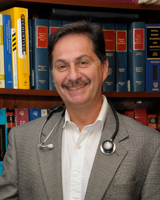 |
 |
| Home | Meet Doc Bob | Issues/Platform | Blog | News | Campaign Poster | Photos | Contact Us |

Small Business & Healthcare Issues - Doctor Bob's
|
Feature Story: Saving Lives; Saving New Jersey Other Countries Tried the Public Option and it is Failing New Jersey Economic Disease - Autopsy Findings RATIONAL HEALTH CARE REFORM The current policies proposed in Washington would result in a government takeover of the health care system. These policies would remove all decision-making concerning personal healthcare matters. We need health insurance reform, not health care reform! There is agreement on many of the problems that plague our current system. They are a lack of accessibility, portability and affordability. The elements to a viable solution would address these issues, yet maintain quality and individual empowerment. They include:
Robert C. Villare, M.D. Assembly Candidate, 3rd Legislative District
SENIOR'S HEALTHCARE BILL OF RIGHTS
My opponents have done nothing of substance for seniors or soldiers in the last decade Doctor Bob Villare for Assembly - - District 3 pledges to:
|


